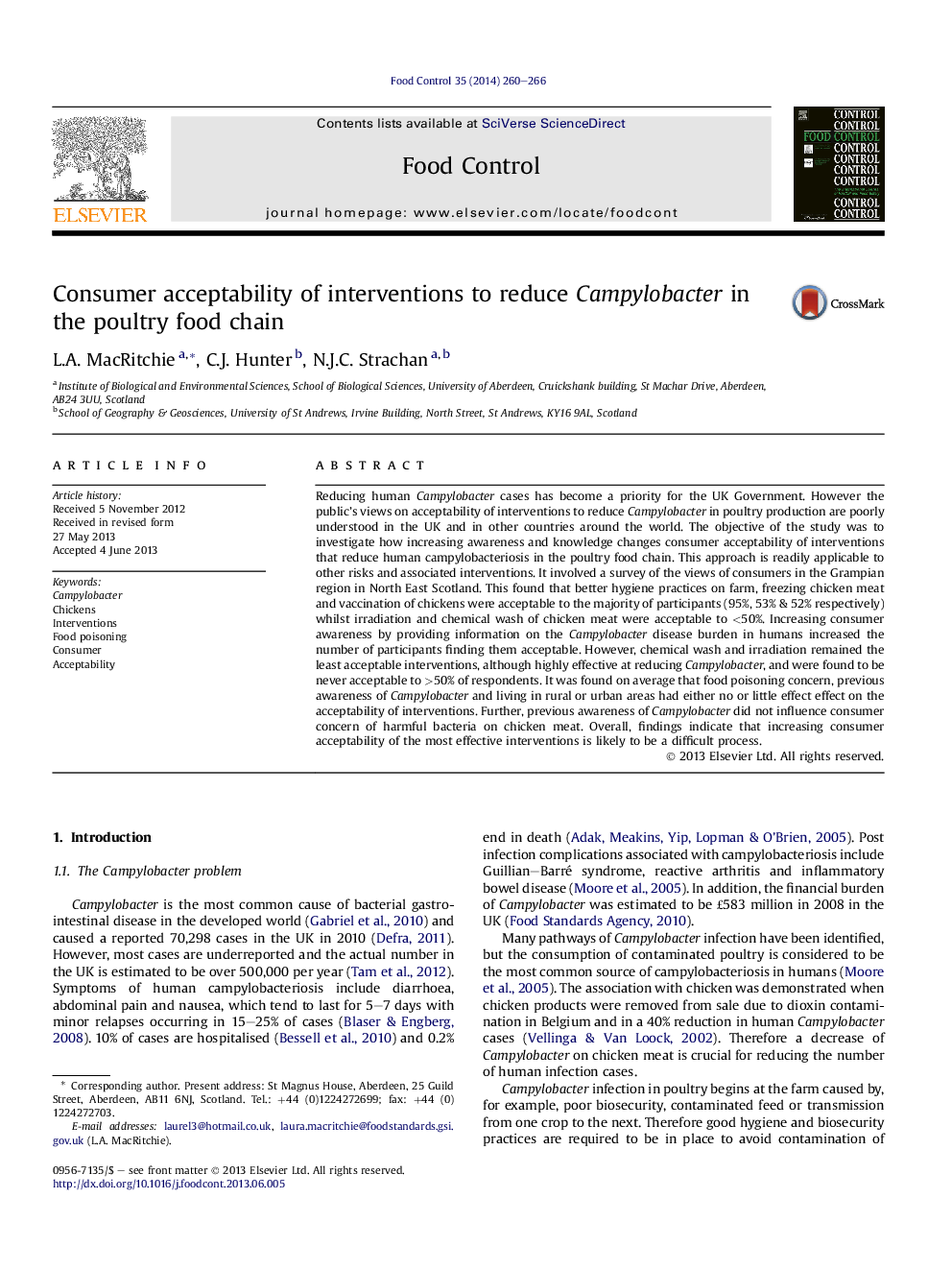| کد مقاله | کد نشریه | سال انتشار | مقاله انگلیسی | نسخه تمام متن |
|---|---|---|---|---|
| 6392632 | 1330441 | 2014 | 7 صفحه PDF | دانلود رایگان |
- Better farm hygiene is the most acceptable intervention to reduce Campylobacter.
- Chemical wash and irradiation were found to be the least acceptable interventions.
- Heightened consumer awareness of disease increased intervention acceptability.
- Previous awareness and concern of Campylobacter did not influence acceptability.
- Increasing acceptability of interventions is likely to be a difficult process.
Reducing human Campylobacter cases has become a priority for the UK Government. However the public's views on acceptability of interventions to reduce Campylobacter in poultry production are poorly understood in the UK and in other countries around the world. The objective of the study was to investigate how increasing awareness and knowledge changes consumer acceptability of interventions that reduce human campylobacteriosis in the poultry food chain. This approach is readily applicable to other risks and associated interventions. It involved a survey of the views of consumers in the Grampian region in North East Scotland. This found that better hygiene practices on farm, freezing chicken meat and vaccination of chickens were acceptable to the majority of participants (95%, 53% & 52% respectively) whilst irradiation and chemical wash of chicken meat were acceptable to <50%. Increasing consumer awareness by providing information on the Campylobacter disease burden in humans increased the number of participants finding them acceptable. However, chemical wash and irradiation remained the least acceptable interventions, although highly effective at reducing Campylobacter, and were found to be never acceptable to >50% of respondents. It was found on average that food poisoning concern, previous awareness of Campylobacter and living in rural or urban areas had either no or little effect effect on the acceptability of interventions. Further, previous awareness of Campylobacter did not influence consumer concern of harmful bacteria on chicken meat. Overall, findings indicate that increasing consumer acceptability of the most effective interventions is likely to be a difficult process.
Journal: Food Control - Volume 35, Issue 1, January 2014, Pages 260-266
